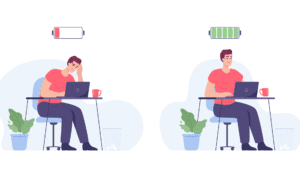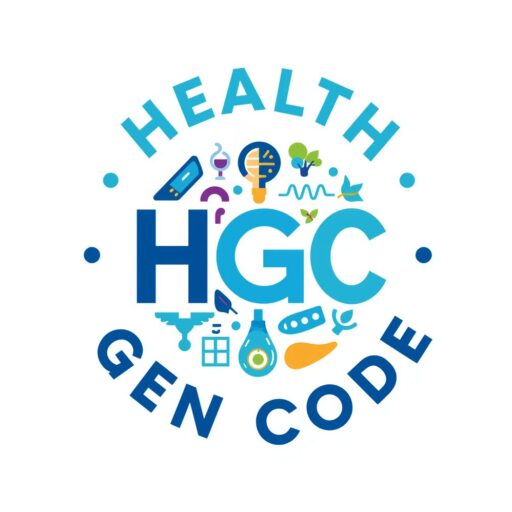You give so much to others. Whether you’re a nurse, therapist, caregiver, teacher, or simply someone who constantly shows up for people around you — your emotional tank can eventually run dry. You may feel unusually tired, less motivated, or emotionally distant. This isn’t just “being tired.” It could be compassion fatigue — a real condition that affects those who care deeply.
At the same time, you may be dealing with low energy physically. Chronic tiredness, dizziness, and lack of mental clarity can also be symptoms of something as common and treatable as iron deficiency. Combine that with compassion fatigue, and you’re not just exhausted — you’re running on empty.
The good news? You can recharge. Naturally. Through food, rest, mindful choices, and a few iron-rich habits, you can shift from burnout to full-body power.
Table of Contents
ToggleIntroduction: Understanding Compassion Fatigue and Iron Deficiency
Compassion fatigue is a state of physical and emotional exhaustion, often experienced by people in caregiving or service-oriented professions. It’s a response to prolonged exposure to the suffering of others — especially when your support is limited or unreciprocated.
Simultaneously, iron deficiency is one of the most common nutritional deficiencies in the world. It can leave you drained, foggy, and even breathless — symptoms that mirror those of compassion fatigue.
But here’s the empowering part: by addressing the nutritional root of your exhaustion — namely iron deficiency — and practicing body-and-mind recovery, you can transform your life.

Fatigue Meaning in Different Languages
Fatigue Meaning in English
Fatigue is more than feeling tired. It’s deep physical or mental exhaustion that rest doesn’t easily fix. It can stem from stress, illness, overwork, or lack of sleep or nutrition.
Fatigue Meaning in Hindi – थकान
थकान का मतलब होता है बहुत ज़्यादा शारीरिक या मानसिक थकावट। यह आराम करने से भी नहीं जाती और अक्सर काम के दबाव या बीमारी से जुड़ी होती है।
Fatigue Meaning in Bengali – ক্লান্তি
ক্লান্তি বলতে বোঝায় এক ধরনের গভীর শারীরিক বা মানসিক ক্লান্ততা, যা বিশ্রাম নিয়েও দূর হয় না। এটি রোগ, চাপ বা অতিরিক্ত পরিশ্রমে হতে পারে।
Fatigue Meaning in Kannada – ಥಾಕಟ್ಟೆ
ಥಾಕಟ್ಟೆ ಎಂದರೆ ಶಾರೀರಿಕ ಅಥವಾ ಮಾನಸಿಕ ಶಕ್ತಿ ಸಂಪೂರ್ಣವಾಗಿ ನಷ್ಟವಾಗುವುದು. ಇದನ್ನು ನಿದ್ರೆ ಅಥವಾ ವಿಶ್ರಾಂತಿಯಿಂದ ಕೂಡಲೇ ಸರಿಪಡಿಸಲಾಗದು. ಒತ್ತಡ, ಕಾಯಿಲೆ ಅಥವಾ ಹೆಚ್ಚು ಕೆಲಸದಿಂದ ಆಗಬಹುದು.
Fatigue Meaning in Tamil – சோர்வு
சோர்வு என்பது வேலை, மன அழுத்தம் அல்லது உடல் நிலை காரணமாக ஏற்படும் தீவிர களைப்பாகும். இது சாதாரண ஓய்வால் கூட சரியாக முடியாத ஒரு நிலை.
Fatigue Meaning in Malayalam – ക്ലാന്തി
ക്ലാന്തി അഥവാ തീവ്രമായ ക്ഷീണം, അതായത് ശരീരവും മനസ്സും ഒരേപോലെ ക്ഷീണിക്കുന്ന അവസ്ഥ. ഇത് വിശ്രമത്തോടെ പോലും പൂര്ണമായും മാറാറില്ല.
Fatigue Meaning in Gujarati – થકાવટ
થકાવટ એ ખૂબ જ ઊંડી શરીરિક કે માનસિક થાક છે, જે આરામથી પણ દૂર થતી નથી. મોટાભાગે આ સ્થિતિ તણાવ અથવા બીમારીના કારણે થાય છે.
Fatigue Meaning in Assamese – থাকনি
থাকনি অৰ্থ হৈছে গম্ভীৰ ধৰণৰ দেহগত বা মানসিক ক্লান্তি। এইটো সাধাৰণ বিশ্ৰামৰ দ্বাৰা দূৰ নহয় আৰু ই অধিক কাম বা মানসিক চাপৰ ফল হ’ব পাৰে।
Fatigue Meaning in Manipuri – ꯊꯥꯀꯨ
ꯊꯥꯀꯨ হৌদবা হায়না ꯁꯤꯡ ꯍꯦꯝদৌ ꯇꯦꯛ ꯈꯣꯛꯄ ꯇꯧꯕ ꯂꯝ ꯍꯟꯗ ꯄꯥꯛꯄানা। ꯑꯃ ꯁꯤꯡꯕ ꯃꯅꯤ ꯍꯦꯜꯇ ꯇꯝনা।
Fatigue Meaning in Mizo – Hlimthla
Hlimthla is a condition of mental or physical exhaustion. In Mizo culture, it often refers to loss of energy or spirit, caused by overwork, illness, or emotional burden.
Fatigue Meaning in Sikkimese (Bhutia)
Fatigue is a tired state called mi gyok tsé, where the body loses energy. It can occur due to long effort, emotional stress, or chronic illness without immediate recovery.
Fatigue Meaning in Kokborok (Tripuri) – Thansa
Thansa means deep tiredness or weakness that doesn’t go away quickly. It often follows hard work or sickness, and can impact your mind and body beyond just normal tiredness.
Fatigue Meaning in Odia – କ୍ଲାନ୍ତି
କ୍ଲାନ୍ତି ଅର୍ଥ ହେଉଛି ଗଭୀର ଦେହିକ କିମ୍ବା ମାନସିକ ଥକାଉଟ। ସାଧାରଣ ବିଶ୍ରାମରେ ଏହି ଅବସ୍ଥା ଠିକ ହୁଏନି। ଏହା ରୋଗ କିମ୍ବା ଅତିକ୍ରମ କାର୍ଯ୍ୟରେ ହୁଏ।
Fatigue Meaning in Telugu – క్లాంతి
క్లాంతి అనేది మామూలు అలసట కాదూ. ఇది శరీరానికి లేదా మనస్సుకి తీవ్రంగా బలహీనత కలిగిస్తుంది. దీన్ని విశ్రాంతితోనే తగ్గించలేరు. దీర్ఘకాలిక ఒత్తిడి లేదా వ్యాధి కారణమవుతుంది.
Fatigue Meaning in Marathi – थकवा
थकवा म्हणजे तीव्र शारीरिक किंवा मानसिक थकवा जो झोप घेतल्यानंतरही कमी होत नाही. हा थकवा अनेकदा ताणतणाव, आजारपण किंवा खूप काम केल्यामुळे होतो.
Fatigue Meaning in Punjabi – ਥਕਾਵਟ
ਥਕਾਵਟ ਦਾ ਅਰਥ ਹੈ ਸ਼ਰੀਰ ਜਾਂ ਮਨ ਦੀ ਗਹਿਰੀ ਥਕावट। ਇਹ ਸਧਾਰਨ ਆਰਾਮ ਨਾਲ ਠੀਕ ਨਹੀਂ ਹੁੰਦੀ ਅਤੇ ਅਕਸਰ ਤਣਾਅ ਜਾਂ ਬੀਮਾਰੀ ਕਰਕੇ ਹੁੰਦੀ ਹੈ।
Fatigue Meaning in Rajasthani – थकावट / थकान
थकावट अरथ है शरीर या मन री गहरी थकान जिक्यां आराम सूं भी दूर नीं होवे। ई हालत बीमारी, चिंता या बहुत काम सूं आवे है।
9 natural ways
Let’s explore 9 natural ways to do it.
1. Prioritize Iron-Rich Foods Daily for Compassion Fatigue
Start with your plate. Iron deficiency often stems from poor diet or low iron absorption. Focus on heme iron (from animal sources) and non-heme iron (from plants).
Top iron-rich foods include:
-
Red meat, liver, and poultry
-
Egg yolks
-
Leafy greens like spinach and kale
-
Lentils, beans, and chickpeas
-
Tofu and pumpkin seeds
For better absorption, pair non-heme iron with vitamin C-rich foods like oranges, bell peppers, or strawberries.
2. Add Iron-Boosting Herbs and Supplements
If you’re not meeting your iron needs through food alone, herbal support can help.
Natural options:
-
Nettle tea: High in iron and vitamin C
-
Yellow dock root: Traditionally used for anemia
-
Spirulina: A plant-based iron powerhouse
Supplements: Always check with your doctor before starting an iron supplement. Too much iron can be harmful, especially if you’re not truly deficient.
3. Drink the Right Fluids for Energy
When you’re wondering what to drink to lose belly fat in 1 week, think also about energy and iron support.
Helpful drinks include:
-
Beetroot juice: Boosts stamina and red blood cell count
-
Moringa tea: A natural source of iron and antioxidants
-
Citrus-infused water: Vitamin C helps with iron absorption
-
Detox water: Supports digestion and improves nutrient absorption
Avoid drinking coffee or tea right before or after meals, as they contain tannins that can hinder iron absorption.

4. Practice Grounding Exercises to Reduce Stress
Compassion fatigue is deeply rooted in stress. Whether it’s post viral fatigue, chronic fatigue syndrome, or emotional exhaustion, your nervous system needs support.
Try:
-
Breathwork or meditation (5–10 mins/day)
-
Nature walks or light yoga
-
Body scanning or progressive relaxation
These help reduce cortisol, balance mood, and allow your body to focus on healing.
5. Eat Foods That Support Your Adrenals
Your adrenal glands regulate stress hormones. Over time, exhaustion from compassion fatigue or iron loss can tax these tiny glands.
Support them with:
-
Nuts and seeds (especially Brazil nuts for selenium)
-
B-complex rich foods (like whole grains and eggs)
-
Adaptogens (like ashwagandha and maca root)
Avoid sugar, caffeine overload, and processed foods that spike cortisol.
6. Schedule Iron Absorption Windows
What does this mean? It’s a technique where you intentionally eat your iron-rich meals without inhibitors like dairy, caffeine, or calcium-rich foods.
Ideal absorption window:
-
Eat iron-rich meals
-
Add a squeeze of lemon
-
Wait 1-2 hours before coffee or tea
-
Take iron supplements on an empty stomach (if tolerated)
This small hack makes a big difference in how your body stores and uses iron.
7. Sleep Like It’s Your Job
Sleep is where both mental and physical recovery happen. Whether you’re facing chronic fatigue syndrome or general exhaustion, this step is non-negotiable.
Try:
-
A consistent bedtime routine
-
Limiting screens 1 hour before bed
-
Natural sleep supports like magnesium or tart cherry juice
-
Keeping your room cool and dark
Sleep is when your body repairs, replenishes iron stores, and resets emotional overwhelm.

8. Rebuild Boundaries at Work and Home
This one is huge for anyone experiencing compassion fatigue.
Ask yourself:
-
Do I feel emotionally safe?
-
Do I have permission to say no?
-
Do I have at least one friend or colleague I can talk to?
You can’t pour from an empty cup. Set boundaries around emotional labor, break times, and even after-hours contact. Talk to supervisors about support options if needed.
9. Embrace Gentle Movement — Not Exhaustion
When you’re already tired, the last thing you need is an aggressive workout plan. But gentle, regular movement is key for improving circulation, digestion, and mental clarity.
Try:
-
20-minute daily walks
-
Restorative yoga
-
Tai Chi or Qigong
-
Low-impact strength training twice a week
This helps fight muscle fatigue, improve sleep, and stimulate appetite — all supportive in iron deficiency recovery.
Why This Matters: The Energy-Compassion Connection
When your iron stores are low and you’re emotionally depleted, everything suffers — from productivity to personal relationships. Your brain fog isn’t just a bad day — it may be a message from your body.
Replenishing your iron and addressing compassion fatigue is about reclaiming your life force. Energy isn’t just physical — it’s your joy, creativity, and sense of self.
What About Chronic Fatigue Syndrome & Post Viral Fatigue?
These more complex forms of fatigue can overlap with iron deficiency and compassion fatigue.
You may need:
-
A more personalized medical approach
-
Tests for anemia, thyroid, or viral history
-
Nutritional guidance or chronic illness support
Recovery is possible — but it takes patience, listening to your body, and choosing rest when needed.
Understanding Chronic Fatigue Syndrome (CFS): When Tiredness Becomes a Daily Struggle
Chronic Fatigue Syndrome, also called Myalgic Encephalomyelitis (ME/CFS), is more than just “feeling tired.” It’s a complex, long-term condition that leads to crippling exhaustion—the kind that doesn’t improve with rest and can worsen with even light activity. People with CFS may find it nearly impossible to perform everyday tasks, go to work, or maintain relationships.
The exact cause of CFS remains unclear, but it’s often triggered after viral infections, immune dysfunction, emotional trauma, or chronic stress. Symptoms include:
-
Severe fatigue lasting more than 6 months
-
Brain fog and poor memory
-
Sleep disturbances (you wake up tired)
-
Dizziness when standing
-
Muscle and joint pain
-
Sensitivity to light or noise
There’s no one-size-fits-all treatment. Recovery may include gentle movement, stress management, balanced nutrition, and medical monitoring. Many find support through restorative diets, liver detox routines, and slowly building stamina with body-friendly habits.
What is Post Viral Fatigue? Why You’re Still Tired After Being “Cured”
Ever recovered from a flu or viral illness, only to feel drained for weeks or even months after? That’s what doctors now call Post-Viral Fatigue Syndrome (PVFS). It’s a lingering exhaustion that can follow common illnesses like dengue, COVID-19, mononucleosis (EBV), or even stomach viruses.
Post viral fatigue is your body’s way of saying:
“I’m still healing internally — don’t rush me.”
Unlike CFS, which is chronic and can persist for years, post viral fatigue is usually temporary, though it can last several weeks. It includes:
-
Physical exhaustion after small tasks
-
Brain fog
-
Poor appetite
-
Emotional irritability
-
Trouble focusing or sleeping
The best approach?
Gentle nutrition, hydration, liver-friendly foods, and small bursts of mindful activity. Detox water, iron-rich foods, and restorative teas like Lulutox Detox Tea can assist in cellular repair and recovery.

Caution:
This article is for informational purposes only. If you’re experiencing ongoing fatigue or symptoms of iron deficiency or mental distress, please consult your doctor or a licensed healthcare provider before starting new supplements or treatments.
Final Thoughts: Power Starts Within You
If you’re reading this, you’re likely a giver. Someone who shows up, even when your tank is empty. And while that’s noble, it’s not sustainable.
Healing from compassion fatigue and iron deficiency is possible. Start with food, sleep, and gentle daily habits. Honor your emotions. Set your boundaries. And don’t hesitate to ask for help — whether it’s from a medical provider, therapist, or community support.
This is your invitation to come back to yourself — more nourished, more grounded, and more powerful than ever.
Call-to-Action
Want more guidance on compassion fatigue, natural recovery, and energy healing? Explore the Body Matters section of Healthy Gen Code (HGC) for clear, uplifting insights. Contact us here and support the journey with your kindness.
Compassion Fatigue to Full Power – Frequently Asked Questions
1. What is iron deficiency, and why is it so common?
Iron deficiency occurs when your body doesn’t have enough iron to produce healthy red blood cells, leading to fatigue, weakness, and low immunity. It’s common due to poor diet, blood loss (especially in menstruating women), digestive disorders, or frequent infections.
2. What are the first signs of iron deficiency I should watch for?
Early symptoms include unexplained fatigue, shortness of breath, cold hands and feet, pale skin, brain fog, and feeling dizzy often. Some people also experience cravings for ice or non-food items — known as pica.
3. Can compassion fatigue cause physical symptoms like iron deficiency?
Compassion fatigue is emotional in origin, but it can lead to chronic stress, poor eating habits, disrupted sleep, and burnout — all of which can worsen or mimic iron deficiency. The two conditions can definitely overlap and amplify each other.
4. How can I tell the difference between compassion fatigue and just being tired?
Being tired improves with sleep. Compassion fatigue is deeper — it involves emotional exhaustion, cynicism, detachment, and feeling numb or overburdened by others’ pain. You may lose joy in helping or even feel guilty for needing rest.
5. What are the best natural foods to help with iron deficiency?
Top natural sources of iron include red meat, liver, spinach, kale, lentils, beans, tofu, pumpkin seeds, and fortified cereals. Pairing these with vitamin C-rich foods like oranges or bell peppers improves absorption.
6. What foods block iron absorption?
Tea, coffee, dairy, calcium supplements, and high-fiber grains can block iron absorption if consumed at the same time as iron-rich meals. It’s best to separate them by at least an hour or two.
7. How much iron do I need daily?
Adult men need about 8 mg per day, while women (ages 19–50) need 18 mg due to menstruation. Pregnant women need even more — around 27 mg. Always check with your doctor for your specific needs.
8. Are plant-based eaters at higher risk for iron deficiency?
Yes, vegetarians and vegans need to be more mindful. Plant-based iron (non-heme iron) is harder to absorb, so it’s important to eat iron-rich foods often and combine them with vitamin C for better absorption.
9. Can detox drinks help with iron absorption or energy?
Yes, certain detox water or detox teas like moringa, lemon-ginger water, or beet juice can support digestion and energy. These drinks help your body better absorb nutrients and may gently cleanse the liver, improving iron metabolism.
10. What is “detox water,” and can I make it at home?
Detox water is infused water with fruits, herbs, or veggies (like cucumber, lemon, mint, or berries). It’s hydrating, refreshing, and helps flush out toxins naturally — which may support better digestion and nutrient absorption.
11. Does using a detox water bottle really help?
Yes! A detox water bottle is a reusable bottle with a fruit infusion chamber. It makes it easy to stay hydrated and helps you build a daily habit of drinking water with antioxidants, vitamin C, and liver-supporting ingredients.
12. Is Lulutox Detox Tea effective for fatigue or iron issues?
Lulutox Detox Tea is a trending herbal tea blend that supports liver function and digestion. While it’s not a cure for iron deficiency, improved digestion can help your body absorb iron more efficiently. Always read labels and consult your doctor before trying new detox products.
13. Can low iron be the cause of my brain fog and forgetfulness?
Absolutely. Iron plays a key role in oxygen delivery to the brain. When iron is low, you might feel mentally sluggish, forgetful, or unable to focus — all common signs of iron-deficiency anemia.
14. What kind of shampoo is labeled as “detox shampoo,” and does it help with energy?
Detox shampoo helps remove product buildup, chemicals, and pollutants from the scalp. While it doesn’t directly impact iron levels, a healthy scalp can improve mood and confidence — which indirectly boosts your energy and self-esteem.
15. Are iron supplements safe? Should I take one?
Only take iron supplements if advised by a healthcare provider. Too much iron can cause nausea, constipation, or even organ damage. A blood test will confirm if you actually need a supplement.
16. Can I reverse iron deficiency naturally without supplements?
Yes, mild iron deficiency can often be reversed through consistent dietary changes — especially when you focus on eating both heme and non-heme iron sources and optimize absorption through smart food pairings.
17. How long does it take to feel better after correcting iron levels?
If you’re treating iron deficiency with food and/or supplements, you may start feeling better in 1–2 weeks, but full recovery (especially for anemia) can take 2–3 months or more. Stay consistent and follow up with testing.
18. Is chronic fatigue syndrome the same as compassion fatigue or iron deficiency?
No. Chronic fatigue syndrome (CFS) is a complex condition involving persistent fatigue that doesn’t improve with rest. While symptoms can overlap, CFS has a broader root cause and needs a multi-system medical approach.
19. Can lifestyle changes really help me recover from emotional exhaustion?
Absolutely. Small daily habits — like restful sleep, iron-rich meals, movement, and boundaries — can deeply impact your recovery from emotional burnout and compassion fatigue. Healing is gradual but real.
20. What’s the best first step I should take today if I suspect iron deficiency or burnout?
Start by listening to your body. If you feel consistently tired or emotionally numb, schedule a blood test for iron levels. Meanwhile, hydrate, rest, add leafy greens and lentils to your meals, and take 10 minutes to yourself — even now. That’s already a powerful beginning.
Sources
- https://www.webmd.com/women/features/10-energy-boosters
- https://pmc.ncbi.nlm.nih.gov/articles/PMC7560777/
- https://www.mayoclinic.org/diseases-conditions/chronic-fatigue-syndrome/symptoms-causes/syc-20360490
- https://www.nhs.uk/conditions/chronic-fatigue-syndrome-cfs/
Referral
- Get off using https://hostinger.in?REFERRALCODE=HGC
- Get off using the link here for buying Premium Web Hosting at Hostingrer https://cart.hostinger.com/pay/de220648-48ab-4d33-9c23-477a6764af14
- Get off using the link here for buying Cloud Startup at Hostingrer https://cart.hostinger.com/pay/fecdf014-ea49-431b-913a-88f30fe1db42

